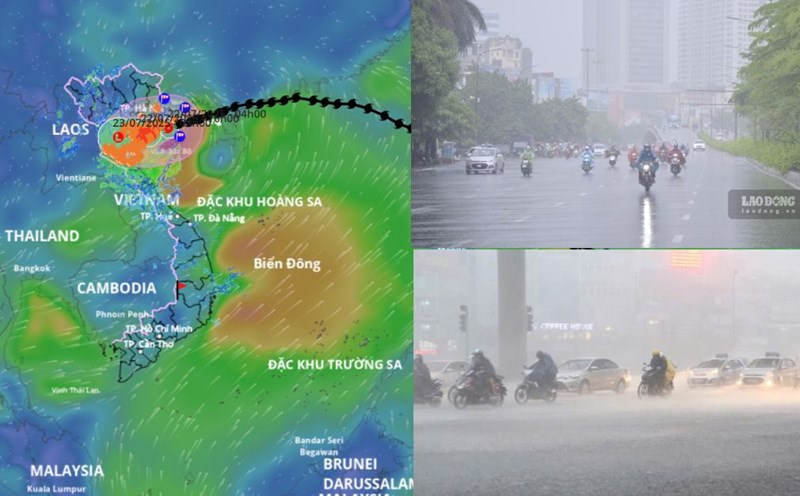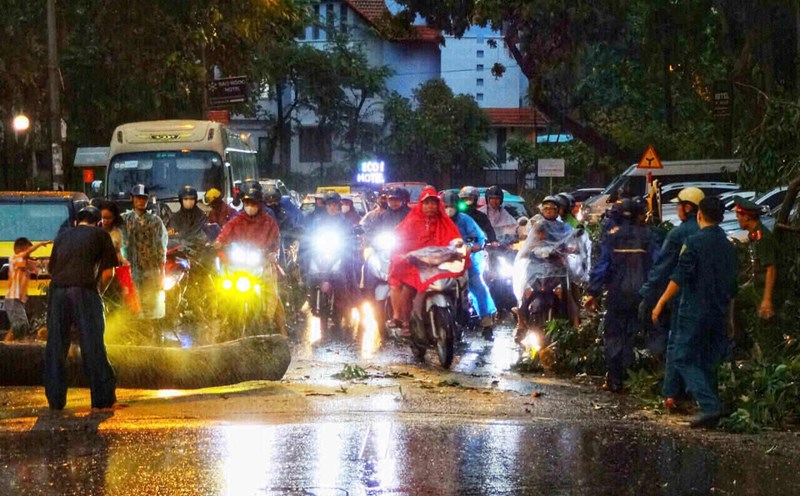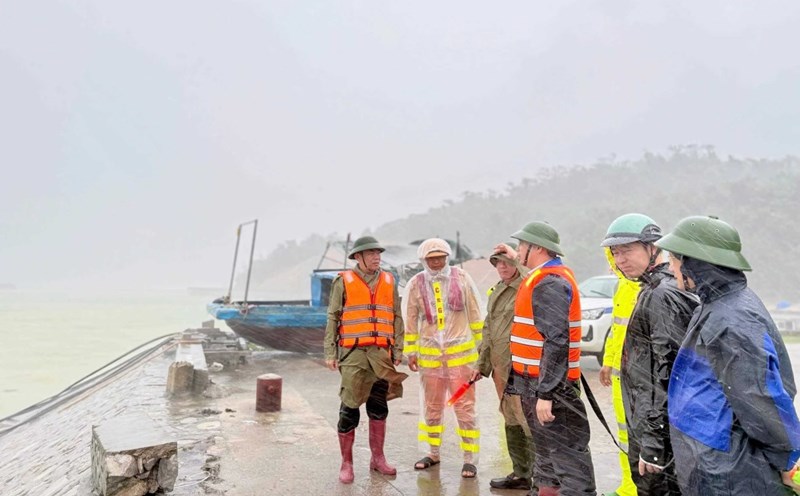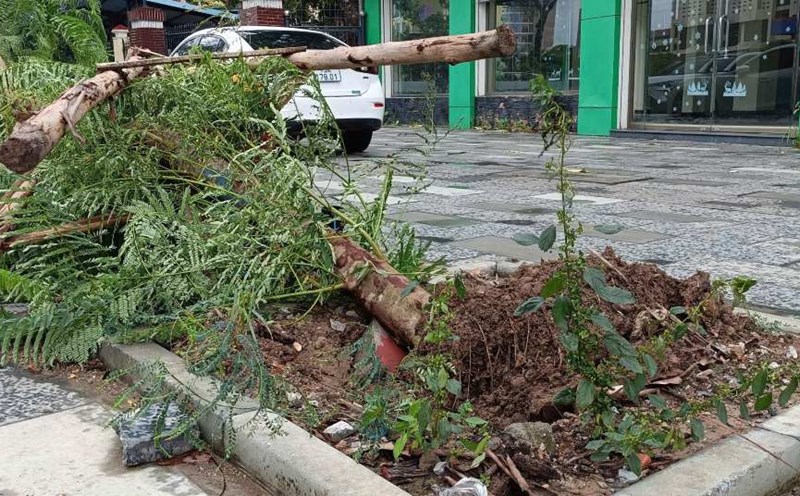According to the Hanoi Department of Industry and Trade, with the motto "on-site logistics", communes and wards proactively reserve essential goods, while the city organizes emergency response goods, supporting localities in situations beyond their reserve capacity. The Department of Industry and Trade also noted that businesses need to proactively prepare for consumer goods with high demand in the context of storms such as: Gasoline, oil, medicine, rubber boots, raincoats, raincoats, flashlights, flashlights, alum, fuels and construction materials...
Records of Lao Dong reporters at many traditional markets and supermarkets in Hanoi show that people's psychology has become much more stable than before. There is no longer the scene of people rushing to store food and provisions like before each natural disaster.
At a traditional market in Me Tri, Ms. Nguyen Thi Huong - a resident living in this area shared: "The house ran out of vegetables, so I bought them to cook, not to store anything. My house is right next to the market and the supermarket so I don't worry".
Mr. Nguyen Van An - a trader at Me Tri traditional market said that the number of customers buying goods today did not increase dramatically. Although the storm is coming, it is not as crowded as the previous storms. The prices of vegetables, rice and meat have not increased, everything is still normal. According to Mr. An, the abundant supply and uninterrupted traffic help traders import goods regularly, without worrying about local shortages.
Recorded at some large supermarkets such as Go Thang Long, Winmart shows that prices of many essential goods remain stable. For example, ground pork costs 120,000 VND/kg, pork bones cost 47,000 VND/kg, VietGap pork ribs cost 135,000 VND/kg, pork belly costs only 147,000 VND/kg, pig's feet cost 103,000 VND/kg, Bac Kan squash is sold for 22,900 VND/kg, cucumber costs 18,000 VND/kg, baby pumpkin costs 89,900 VND/kg, okra costs 32,900 VND/kg... The stalls are all packed with goods.
According to retail experts, the improved supply chain, smooth logistics systems and more transparent and accurate weather forecasts also help consumers feel secure and avoid panicking. In addition, supermarkets currently have backup plans when natural disasters occur, from inventory warehouses to transportation forces, ensuring continuous supply.











